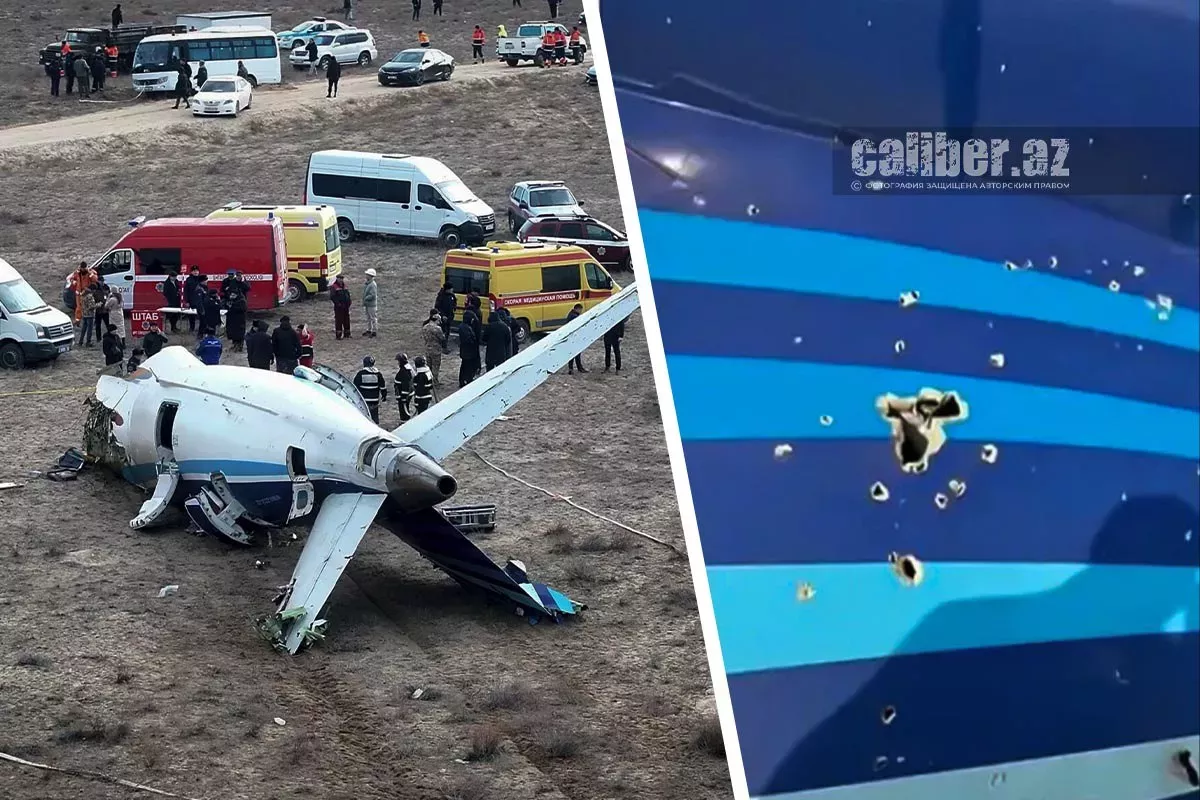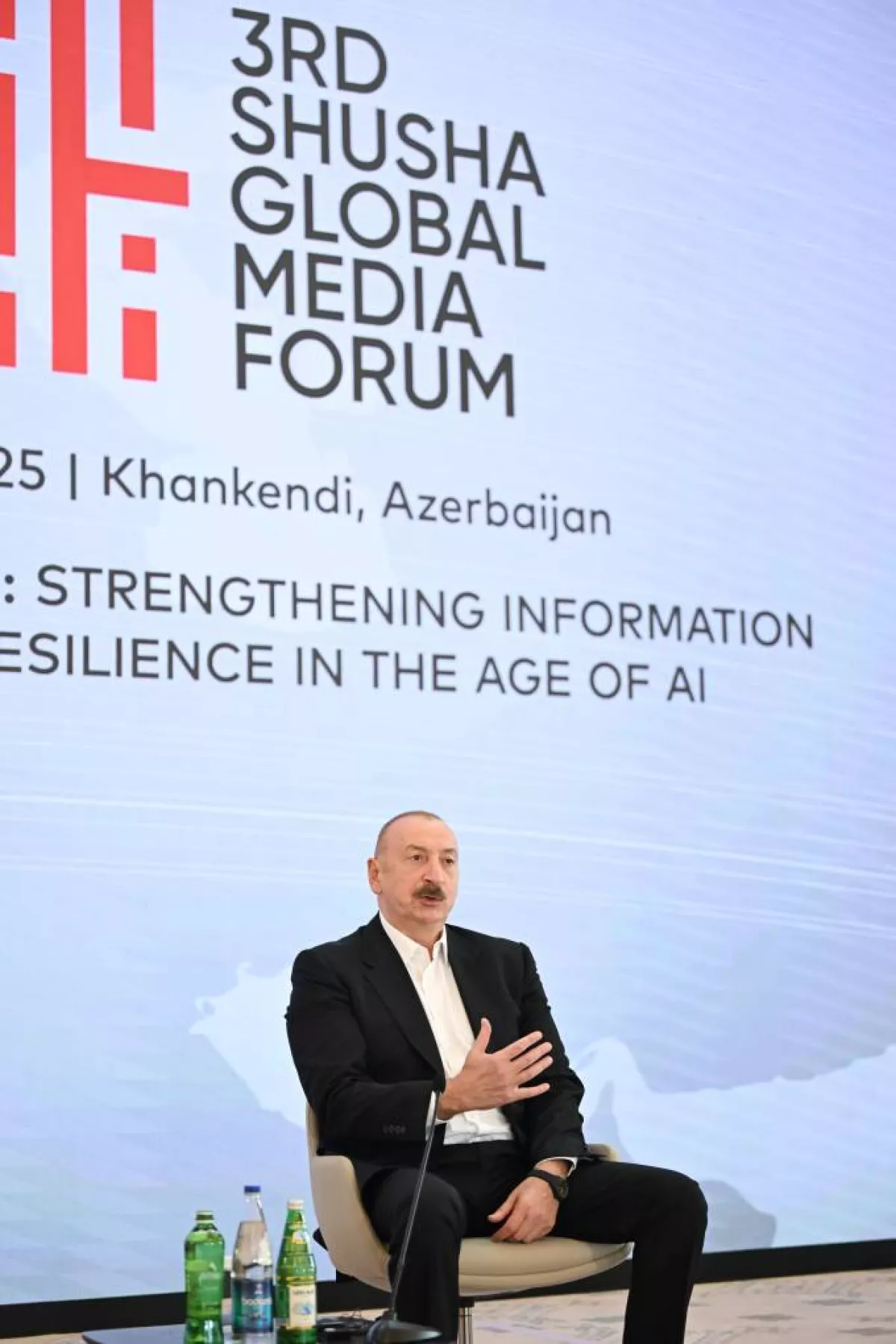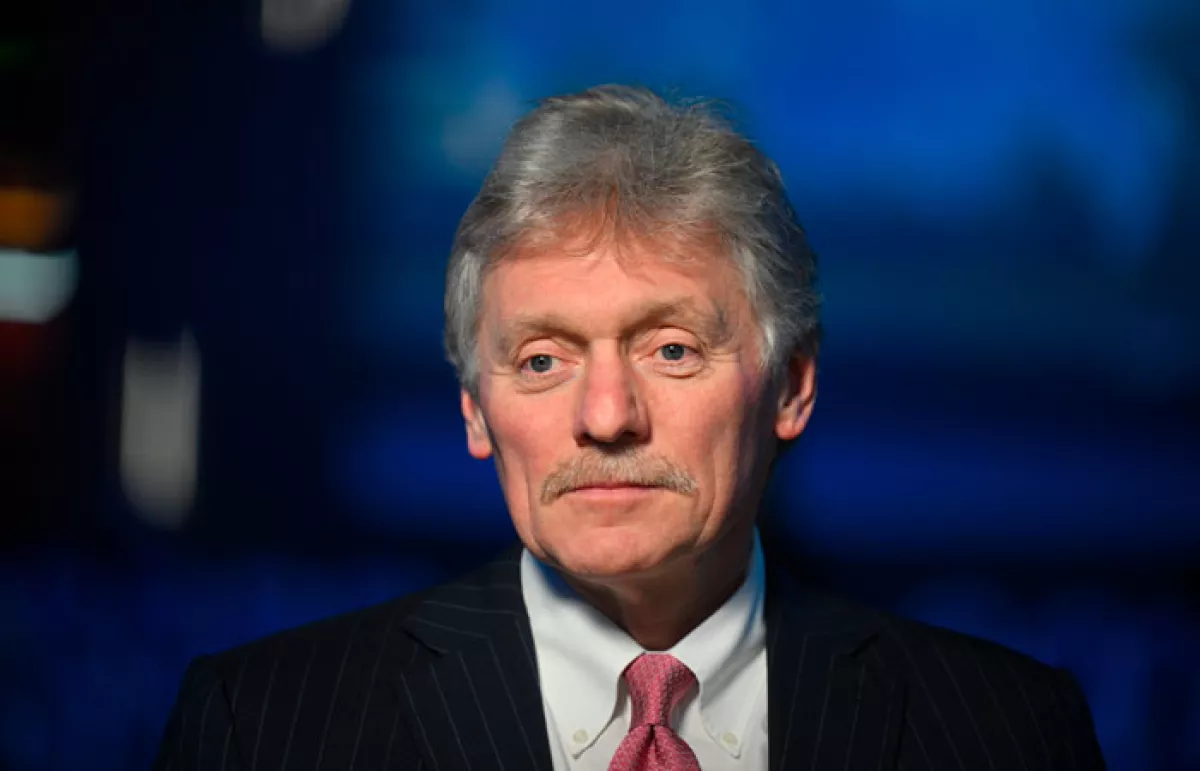In anticipation and search for justice President Aliyev on downed AZAL plane
It would probably be strange if President Ilham Aliyev was not asked at the recently concluded Shusha Media Forum about Azerbaijani-Russian relations and the situation surrounding the downing of the Azerbaijani plane over Grozny. The journalist who asked the question, Nailya Balayeva from Reuters agency, very skillfully focused precisely on this point of the agenda, rather than on the case of the killing of Azerbaijanis in Yekaterinburg, fully understanding that the lack of a clear position from Moscow regarding the Embraer catastrophe is the key issue in the current crisis between Russia and Azerbaijan.
Ilham Aliyev’s response, as always, was detailed, extremely substantive, devoid of emotion, and unequivocal. The president began by stating the problem: “Unfortunately, we have not received any response from Russian officials, though seven months have already passed. For us, everything is clear. We know what happened, and we can prove it. And we know that Russian officials know what happened. The question is: why do they not do what any neighbor would do? Our requests or demands are absolutely natural: – Admit that this accident was their fault; – Punish those who shot down our plane; – Pay compensation to the families of the victims, to those who were wounded, and to AZAL for the loss of the plane.”

With this remark, Aliyev responded to the speculations suggesting that the catastrophe is some complicated case requiring a lengthy investigation before determining who is responsible. Aliyev also added that he can provide more details about the crash.
“Fortunately, the pilots demonstrated bravery, courage, and professionalism — they managed to land the plane, so we didn’t lose it. As soon as we sent a team to Aktau to investigate, they reported — and filmed — that the fuselage was full of holes. Two people on board were injured by shrapnel. So, the idea that it was a Ukrainian drone that possibly hit the plane is absolutely ridiculous.”
“There were two attacks on the plane. Can you imagine — a Ukrainian drone comes, targets an Azerbaijani plane, hits it, falls down, and then comes back again? That’s a story for kindergarten,” President Aliyev continued.
Highlighting this point, the President of Azerbaijan moved to another equally important issue. “Plus, Russian airspace was not shut down. It was shut down several minutes after the plane was hit. That is also the responsibility of those who failed to announce the “KOVER” operation to close the airspace. All of that is as clear as today’s sky.”
In conclusion, President Aliyev stated the following: “But for seven months, we’ve had no answer. Our Prosecutor General regularly sends letters to the head of Russia’s Investigative Committee. All the letters get the same response: ‘The investigation continues.’ So, we will wait until the investigation ends. But I think it is counterproductive to behave this way. It will not lead us to forget. We will not forget. We are now preparing — and have informed the Russian side — that we are preparing a case to apply to the international judicial system. We know this may take time. The Malaysian Boeing case took more than 10 years. So, we will wait for 10 years. But justice must be achieved. And unfortunately, the current state of this issue is not helpful for bilateral relations between Russia and Azerbaijan.”

President Ilham Aliyev's position is that of a confident leader of a strong country, for whom respect for sovereignty stands above all other considerations. And this is no coincidence. Respect for one's own and others’ statehood lies at the very foundation of modern Azerbaijan. The country did not restore its territorial integrity at immense cost just to turn a blind eye to disrespect — even if it comes from a global power.
The question, “why do they not do what any neighbor would do?” still hangs in the air.
Russia has lost one of its key levers of influence in the South Caucasus — the Karabakh conflict. This outcome was driven by objective factors, primarily the growing strength of Azerbaijan, whose policies effectively neutralised Moscow’s ability to intervene actively on Armenia’s side. However, the inertia of imperial thinking remains a factor in the Kremlin’s policymaking. The withdrawal of Russian peacekeepers may well have been perceived in Moscow as an affront. Unable to assert itself in the geopolitical game, all that remains for Russia is to resort to various diplomatic gestures and demarches. One might assume that the Kremlin is using the catastrophe involving the Azerbaijani aircraft as a tool to demonstrate its indifference.
Perhaps the reason lies in the fact that the Kremlin may even wish to punish the military personnel responsible for the criminal negligence that led to the downing of the Azerbaijani aircraft — but cannot do so in the midst of its so-called “special military operation” in Ukraine, for fear of provoking the wrath of the security and military establishment.
Still, there are situations in which waiting for the results of an official investigation — when a preliminary one has already established the main facts — amounts to inexcusable disrespect towards the aggrieved side. The possible motives behind the Kremlin’s actions outlined above can help us understand what is happening, but they can by no means justify it. In the context of friendly — indeed, allied — relations, as those between Azerbaijan and Russia are officially described, such disregard for a partner is simply inconceivable.
What is also telling is how Russian authorities, experts, and media representatives systematically avoid discussing the AZAL aircraft crash, instead attempting to shift all attention to the Yekaterinburg incident — as if that were the root cause of the crisis in bilateral relations.

Recent comments by Russian presidential spokesperson Dmitry Peskov were also framed in this very manner. He noted that Russia is home to a very large Azerbaijani diaspora, almost all of whom are law-abiding citizens who enjoy “well-deserved respect.”
“Those citizens who break the law are prosecuted in accordance with the law,” the Kremlin representative stated.
The very fact that the topic was shifted in this way suggests that the issue of the Azerbaijani aircraft is extremely uncomfortable for Moscow. The only thing Peskov said in reference to President Aliyev’s remarks was the following:
“Moscow will await official rulings in the event that Azerbaijan files a lawsuit in international judicial institutions against Russia over the crash of the AZAL aircraft near Aktau.”
In other words, it’s the same cycle all over again.
It will be interesting to see how Moscow reacts once the final verdict of the investigation confirms what is already widely known. Perhaps it will finally do what Azerbaijan is demanding: acknowledge responsibility, punish those at fault, and pay compensation. But will this restore Baku’s trust? The answer is obvious — no. And that trust is of great value. Yet it can still be regained.








